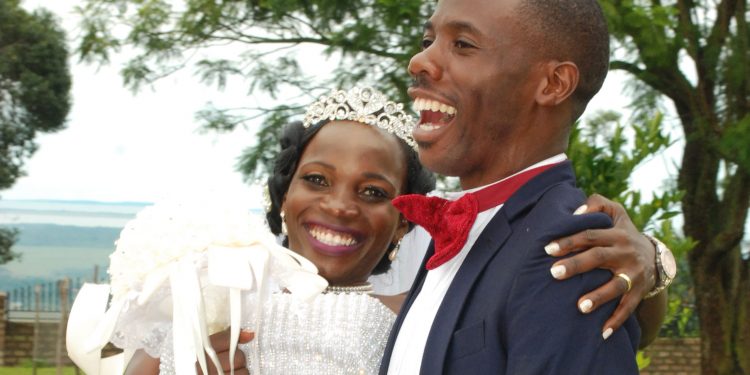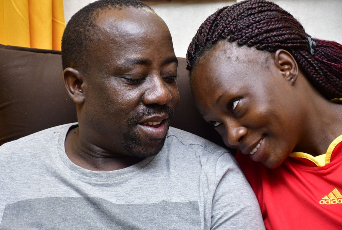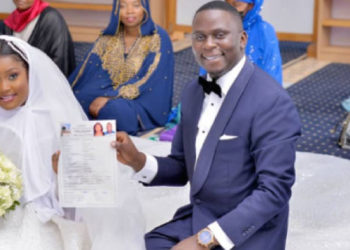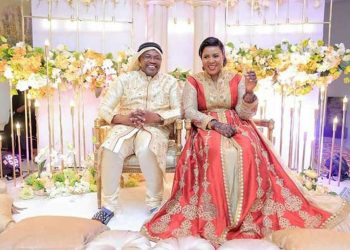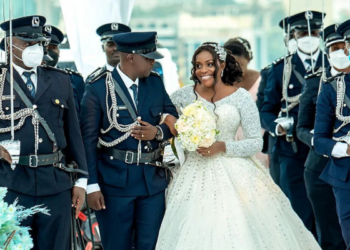By Gertrude Mutyaba
Moses Muwulya, 32, a communications officer at Kitovu Mobile walked down the aisle with Rhodah Namubiru, 31, a teacher at Love in Action Primary School in Bukakata sub-county in Masaka District on May 11, 2019. They shared their story with us.
How and when did you meet?
Moses: We met in 2010 at Kizza Memorial Secondary school in Masaka where we were both teachers.
When did you become so close?
Moses: A year later, we grew close.
Rhodah: After spending one year at the school, Moses always maximised chances to talk to me.
At what age did you get married?
Moses: At the age of 32, but we started cohabiting at 26
Rhodah: I got married at 31.
What were your reasons for cohabiting?
Moses: Honestly, we can’t easily say it was this or that. We just found ourselves cohabiting after she conceived. But taking long to wed was because of resources. We had a lot that consumed our finances more especially studies and nursing a daughter with cancer.
Why did you finally decide to make your relationship official? 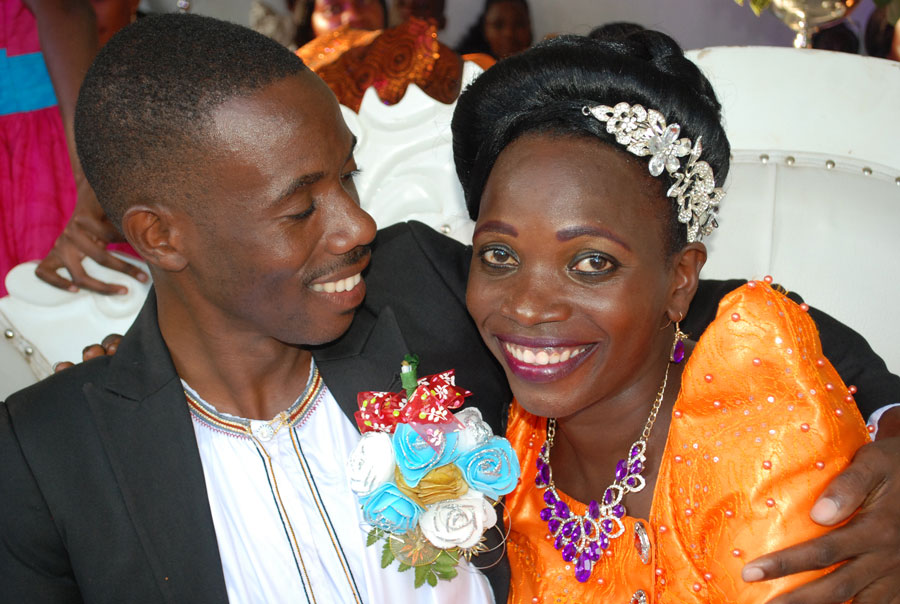
Moses: A number of factors saw me wed; some are romantic, others are spiritual.
After giving my life to Jesus, I started looking at marriage as a ministry and always got convicted that God did not recognise us as husband and wife. I started evangelism and always thought it was denying me moral authority to preach the word of God.
But also, as a candidate seeking admission into the religious order, I had to be a holy communicant to be eligible as provided for in the Canon Laws of the Province of the Church Of Uganda.
I also wanted to cement my longtime relationship with my fiancée with whom we have been gifted with two beautiful children. She is a lady of great character. We had also braved a lot of problems together and I thought I would pay back by sealing this deal.
What would you say are the disadvantages of cohabiting first? 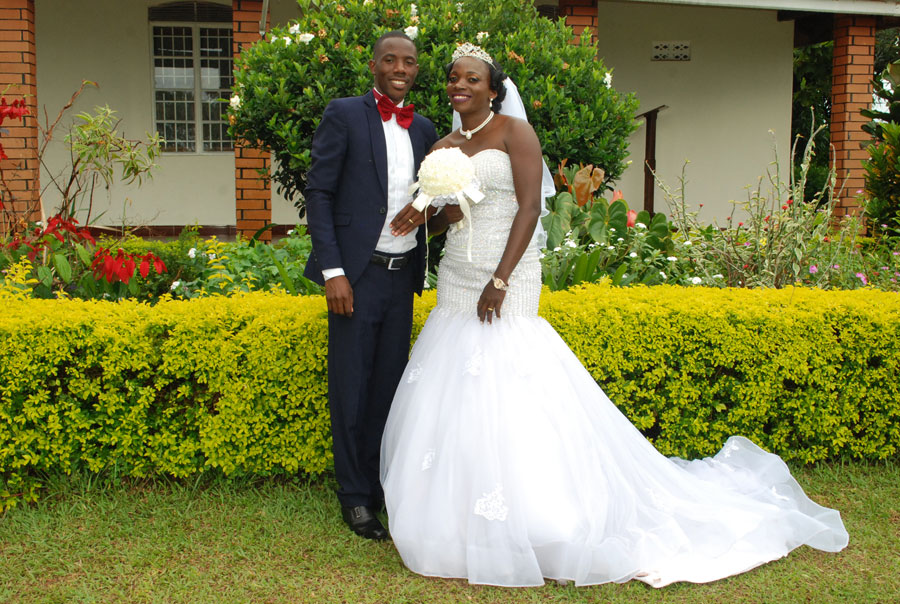
Moses: The in-laws don’t take you seriously. I wouldn’t say it was the case with me but I see them treating me with more respect than before. I also feel free than I did before.
It also kind of makes your spouse insecure, thinking that you might marry another woman plus the Church doesn’t consider you a complete Christian and it denies you room to take on big responsibilities. However, it was not all bad because we learned how to handle each other, which is also important.
Did you pay any fine to her parents when you decided to wed her?
Moses: No. In fact the parents just made everything easy for me. They didn’t even direct us on what to bring as gifts, except omutwalo gwa taata (bride price) which was also a simple radio. I wish to thank them very much and yearn that other parents would emulate them.
Did you go for premarital counselling?
Rhodah: Yes. Bishop Henry Katumba-Tamale taught us important lessons which have since changed our marriage life.
You had been staying together, why would you go for counselling? 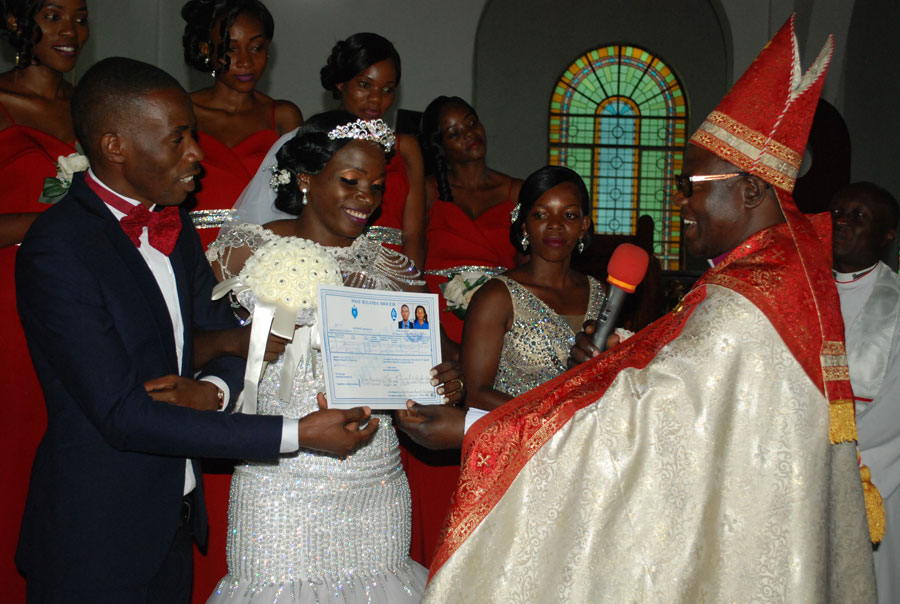
Moses: Like you, I initially thought pre-marital counselling better suits those who have never been together and had seen it as wastage of time for both the couple and the priest conducting the session. At first, we embraced it for the sake of honoring the Church norms. In fact, had we nearly missed the Bishop’s counselling session because of his busy schedule, but he pressed on and held it at our home, late in the evening (8 to 10 pm) saying he hates presiding over a wedding without counselling the couple. And I must confess that whatever he shared with us was of great use to us as we learnt from a knowledgeable person.
What did you learn in counselling that has helped/improved your marriage?
Moses: A lot, right from how to prepare for a not so expensive wedding ceremony by doing what makes us happy and not what makes the guests praise us. The Bishop echoed this several times and it helped us organise the ceremony within our means.
But most importantly we were told how best to enjoy the journey we had started. They gave us dos and don’ts, many of which had been part of our practice. Like communication, this wasn’t our thing yet it is a pillar. We have since learnt to communicate better and it has spiced our love relationship. At our home, the counselling lessons have since become our constitution that whenever we fall short of the lessons, we remind ourselves by referring to what the Bishop said.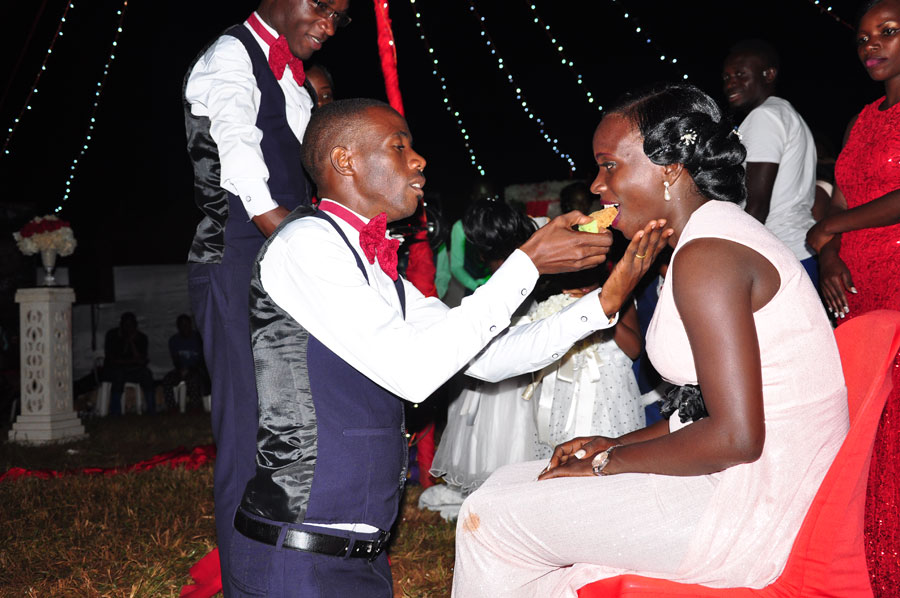
We learnt about issues of finance, the need to disclose what each of us earns, deciding on what to do with the money, what to give the in-laws and so on. This was a great lesson to me because we were told that we are one and need to speak one language.
Parenting, a key aspect in marriage was also touched and had a lot of insights on this issue which of late is getting less attention from the parents.
Lastly, and probably the most interesting bit of it was the conjugal topics. Here, we all learnt so many things. We would get shy having the Bishop talk about them, but he stressed how the topic was so important.
How many guests did you have?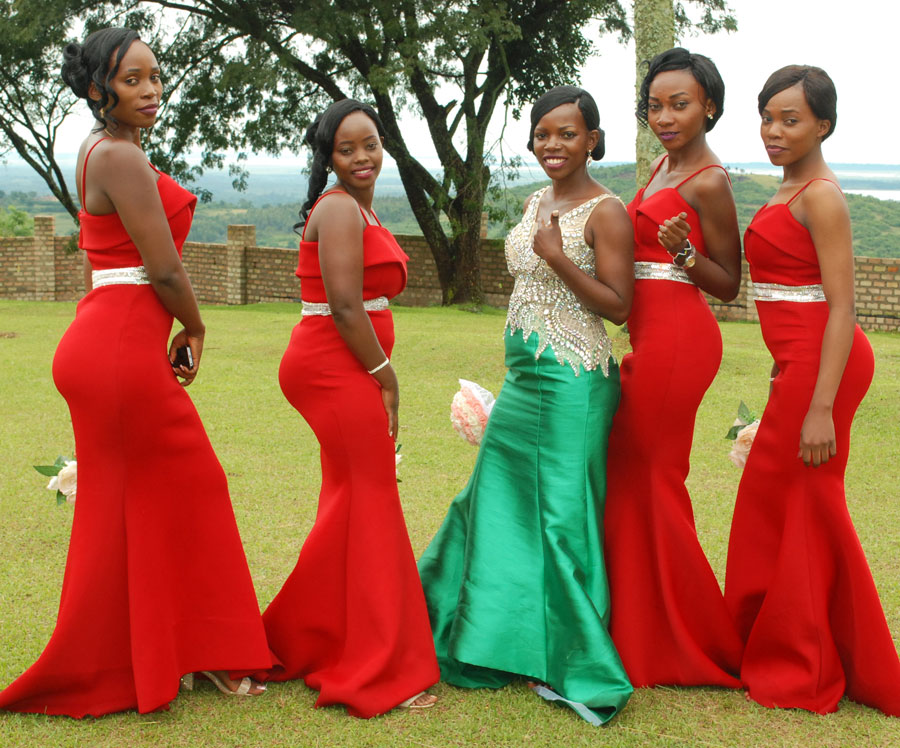
Moses: About 400. They would have been more but it rained heavily on that day.
What was the budget for your wedding and how did you raise funds?
Moses: Shs10m which was raised by friends and relatives.
What were the most expensive items?
Moses: Food and decoration, each costing Shs2.5m and Shs1m, respectively.
Who was your maid of honour?
Rhodah: My sister, Dorcus Namayanja.
Who was your best man?
Moses: A long-time friend Christopher Kisekka. I wanted someone who would be there for my family because a bestman is supposed to be someone my wife, children would feel comfortable to talk to when I offend them or behave in a manner that is appeasing.
I went against all odds to have him as my best man; he is a staunch Catholic and I am Anglican.
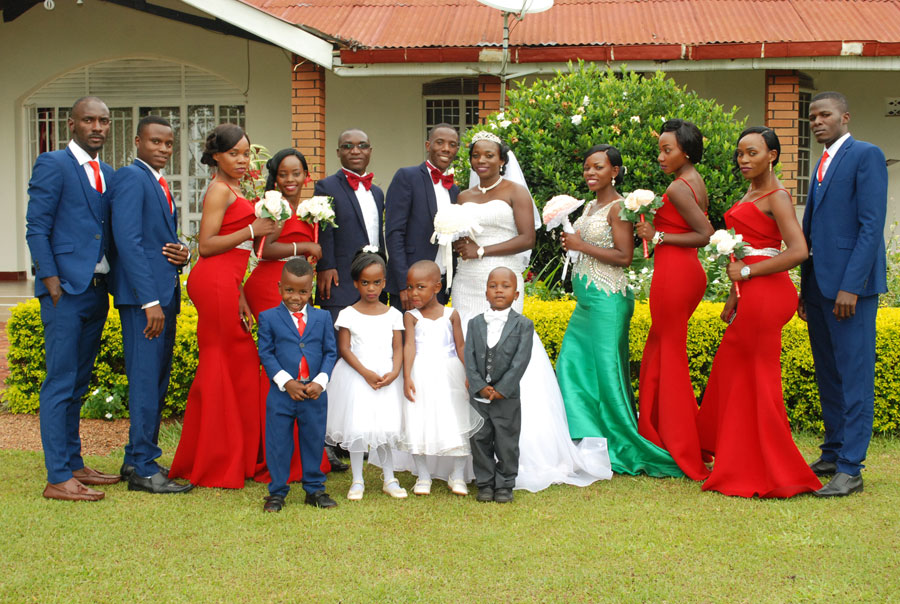
How did you choose your maids?
Rhodah: Our former students offered and we had no objection as all of them were our close friends.
How did you choose your groomsmen?
Moses: No criteria. Most of my friends failed to make it because of several responsibilities and I had to substitute them. It was fluid.
Did you involve a wedding planner?
Moses: No, a few colleagues planned for the wedding, although I had to leave out some of their ideas because they were expensive yet we had limited funds. I wanted a wedding that would tell someone that things are simple if you choose to make them so.
What were you doing on the wedding eve?
Moses: Oh! Very busy with preparations most of which would have been done by the wedding committee, best man and friends: but most of them were busy with work.
Rhodah: Busy with salon and organising myself together with my matron and maid.
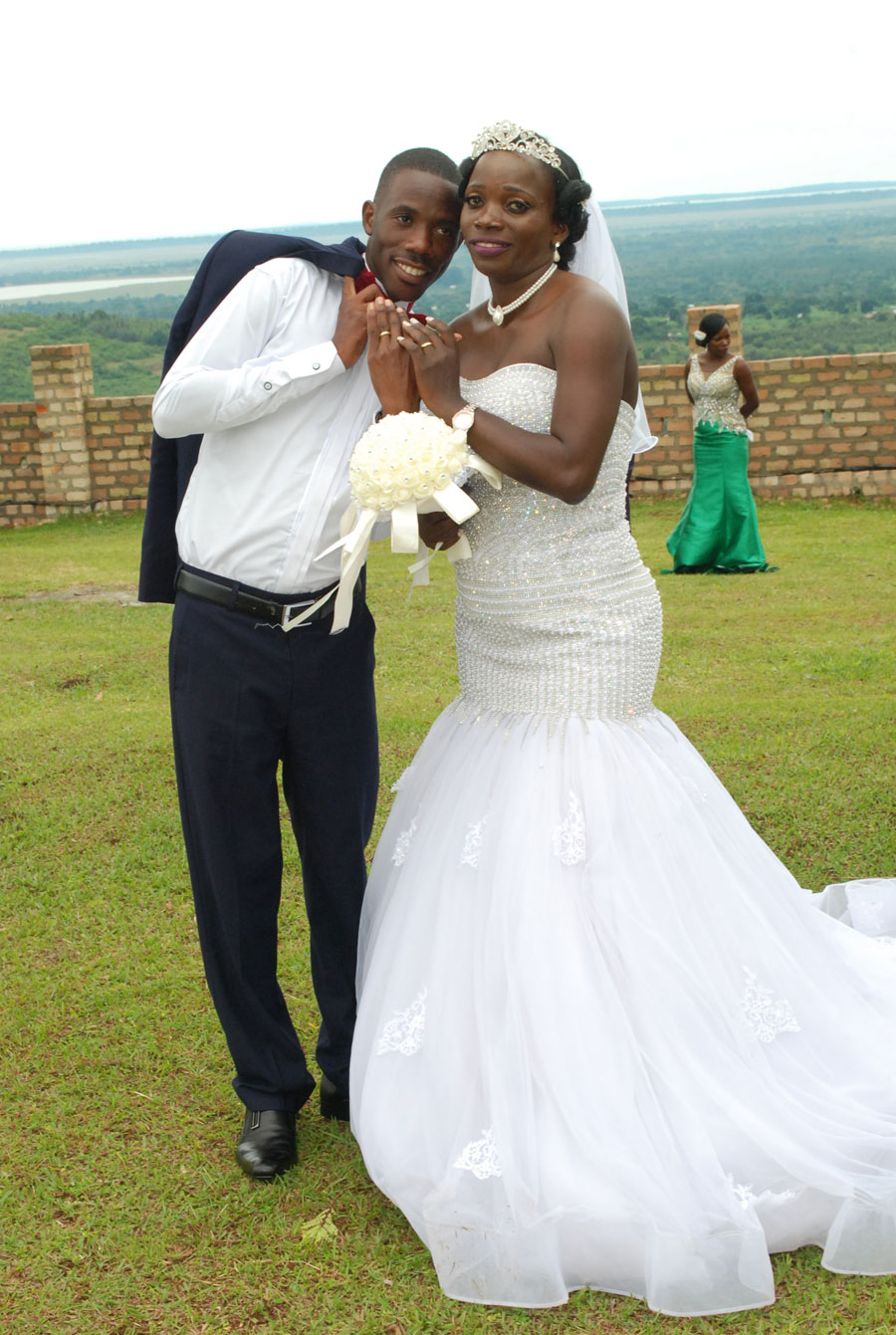
What was the most exciting moment?
Moses: Exchanging our vows was exciting because I had impatiently waited for this. Besides, it opened my gates to be eligible for Holy Orders (apply for ordained ministry) because in the Church of the Province Of Uganda, one is ineligible to study Theology if he or she is not a holy communicant.
Rhodah: Saying “I do” was interesting because that was one thing I had longed for.
Where did you buy your rings from?
Moses: Mothers Union Office, West Buganda Diocese.
Which gown did you wear?
Rhodah: Mermaid gown.
Were you disappointed in anyway?
Moses: I kept time but my bride delayed to make it to church.
The tailor gave us trousers which were not ours. They were oversize and I wondered why he took our measurements.
My best man’s trousers were tight. When we went to the vestry to change we found trousers too big for my small waist. My bestman advised me to tighten it with a belt.
On Sunday the tailor called us to apologise that he had just realised that his employee had messed us up after his client had come for his suit. I let go of the matter.
Rhodah: My parents were caught up by rain and missed us exchanging vows.
What was the most important thing on your wedding?
Moses: Getting wedded in Church and get out of the sin (cohabitation). Also, having Bishop Katumba as the main celebrant; he is my role model in terms of preaching and as a family man. I wanted a priest whom I could borrow lessons from.
What was the most challenging thing during preparations?
Moses: Fund mobilisation for the wedding and introduction. Occasionally, the introduction overshadowed the wedding preparations, resource-wise.
Your advice to those planning to wed?
Moses: Keep the wedding within your ability not everything you have seen others do.
Rhodah: Do not consider every idea friends bring to make the wedding posh when they do not bring money.
Given chance to re-wed, what would you change?
Moses: I would not wear a suit, also I would not let my bride wear a gown.
Rhodah: I would keep time to avoid annoying my husband.

